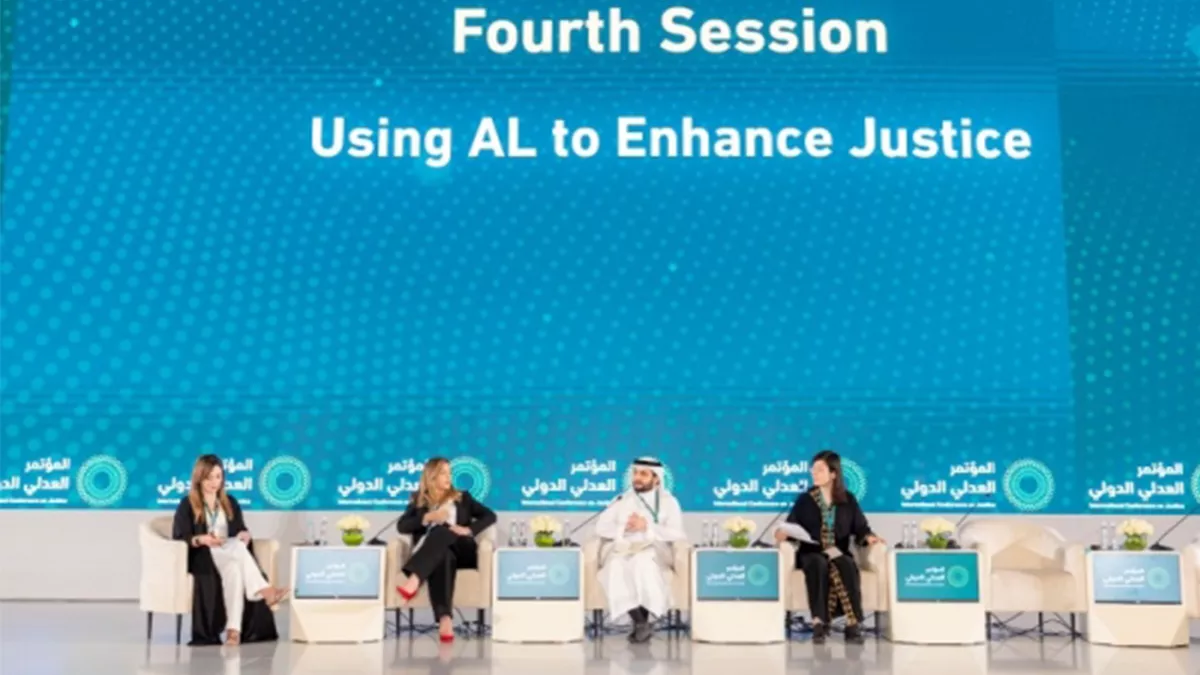
The fourth session of the International Conference on Justice (ICJ) discussed the topic of “Using Artificial Intelligence (AI) to enhance justice” in Riyadh on Monday.
Addressing the session, Eng. Yasser Al-Sudais, deputy minister for planning and development at the Ministry of Justice, said the ministry uses AI in predicting the judicial rulings or the judge’s decision, as well as in making recommendations that support the court panel, in reading and recognizing texts, in addition to documentation, reading and verifying rulings, and optical character recognition.
Al-Sudais revealed that the ministry invested in technological infrastructure projects and developed a system for handling cases and procedures that connects to 65 government agencies. More than eight billion digital transactions have been linked together in order to gather a vast amount of data that enables machines to learn, he said.
“The challenge we had was deciding the types of cases that we would allow artificial intelligence to work on, and we determined that it should be straightforward cases that place a significant load on the courts. We intended to use artificial intelligence to address this issue,” he emphasized.
Al-Sudais drew attention to the need for the formation of human committees to ensure the accuracy of predictions as well as the validity of the data and whether this data is suitable for AI use. This also ensures the data’s transparency and the interpretability of machine decisions.
During her address, Francesca Mazzi, research fellow in AI and sustainable development at Said Business School, University of Oxford, said: “The definition of artificial intelligence that I prefer to use is a technology that allows us to perform actions that frequently require intelligence if humans perform them. This definition demonstrates that it is more detailed and specialized and it focuses on the specifics of the tasks, and everything related to them.”
She noted that there are connections and convergences between artificial intelligence and the law as well as the fact that the technology may be used in a variety of fields due to its versatility. “For instance, if we discuss artificial intelligence in health care, it also affects how laws and regulations are applied when dispensing medications and other treatments. AI in financial services is another example. This also holds true for industry regulations,” she affirmed.
Mazzi pointed out that the life cycle of artificial intelligence is based on deduction and learning from data, so the personal data protection law is significant and related to artificial intelligence. She also noted that the intersection and convergence between artificial intelligence and the judiciary revolve around three crucial points; legislation and regulation, ethical framework, and achieving sustainable development objectives through AI.
Dr. Deng Suning, a researcher at the Law College at China East University for Law and Political Sciences, also took part in the session. She said: “As for artificial intelligence in China, legal questions and answers, legislation and expediting consultations, remote submission of applications and files, and remote filing of lawsuits are just a few of the fields that are covered by this technology”.
